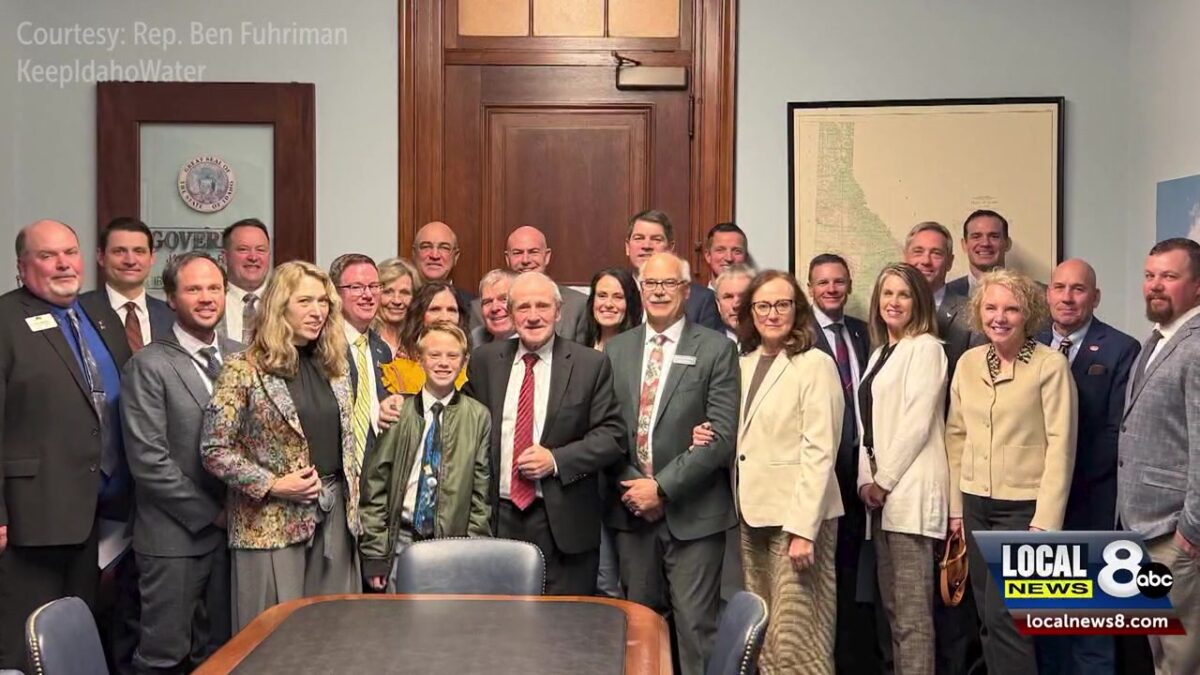750,000 acre-feet of new water storage by 2100: Idaho leaders/farmers develop long-term water plan

Seth Ratliff
IDAHO FALLS, Idaho (KIFI) — A group of Idaho leaders, including state representatives, city officials, and farmers, recently returned from Washington, D.C., after successful meetings with the state’s federal delegation. Their goal was to secure important federal funding for new water storage in an effort to combat the state’s ongoing water troubles.
The proposals, as outlined in Senate Joint Memorial 101, include potentially rebuilding the Teton dam, along with expanding the Ashton, Minidoka, and Jackson Lake Dams, and even supporting aquifer recharge projects on federal lands.
State Senator Kevin Cook described the meetings with Idaho’s congressmen and senators as “highly positive.” With their guidance, they are now moving forward by mapping out a comprehensive long-term plan, starting with a study across the Snake Plain Aquifer.
“Basically, we want 750,000 acre-feet of new surface water storage by the year 2100,” explained Senator Cook. “They were excited to see that we had plans, that it wasn’t just a short-term fix, but we’re looking now 75 years (into the future.)”
Last session, the Idaho Legislature passed House Bill 445, which appropriates an ongoing $30 million toward the Idaho Department of Water Resources to fund water infrastructure projects. However, Senator Cook emphasizes that even with the additional funds, the project to rebuild the Teton Dam alone would cost upwards of a $1 billion.
“Frankly, in a project like the Teton Dam, there’s just no way that the state can afford that,” said Cook. “We’re going to need some federal funds.”
Cook stressed the plan must be done right, particularly for the Teton Dam. The study of the Snake Plain aquifer could take up to two years, but they’re attempting to streamline the process by planning potential aquifer recharge and water storage projects amid the ongoing study.
Looking ahead, Cook says the next strategic step is to build support among Western States to gain stronger congressional backing for the necessary federal funding. Cook says the group is already planning a follow-up trip to Washington, D.C., next year to continue developing these long-term projects.